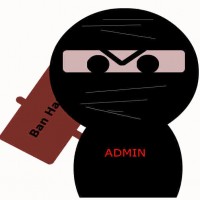Egypt, Syria Unplug from Web to Tame Political Unrest

YNOT EUROPE – The internet went dark in Egypt at about 30 minutes after midnight Friday as the government attempted to quell deadly protests demanding the ouster of President Hosni Mubarak.
According to early reports from Al Arabiya, Syria quickly followed suit, completing a partial shutdown government officials engineered Wednesday after a coup allegedly backed by Al-Jazeera overthrew Tunisian President Zine al-Abidine Ben Ali. Some Middle Eastern media reported Ben Ali’s ouster resulted from his close ties to the West, but government-controlled Syrian media on Friday laid the blame on unrest over prices, unemployment and state repression.
By 10:30 a.m. U.S. Eastern time, Middle Eastern media reported most of the web was back online in Syria, but Egypt remained dark at noon ET. Reuters reported the Syrian government continues to block services that “allow access to Facebook Chat from cellphones.”
Other nations in the Middle East reportedly are considering blocking all incoming and outgoing web traffic as well, fearing the political upheaval may spread.
Egypt’s total internet blackout shocked observers worldwide. According to the Associated Press, the move is an attempt to silence dissent that turned violent on Thursday and ramped up after noon prayers on Friday, when police fired water cannons and tear gas at pro-democracy advocate Mohamed ElBaradei and his supporters inside and outside a Cairo mosque. ElBaradei has been particularly outspoken in his calls for Mubarak to end his 30-year reign.
Large groups of protestors convened in five other Cairo venues and began marching across the city of 18 million people, demanding an end to “government neglect, rampant poverty, unemployment and rising food prices,” according to the AP.
Horrified and outraged by the extreme disconnect mandated within Egypt and Syria, experts said the same may occur in other Middle Eastern countries but is unlikely to happen in the U.S., where the internet evolved and political divisiveness is at a fever pitch. A U.S. unplugging could be disastrous for the web, as many of the network’s primary routers and hubs are located in the country or controlled by U.S.-based companies.
“It can’t happen here,” Jim Cowie, chief technology officer and a co-founder of Manchester, N.H.-based network security firm Renesys, told the AP. “How many people would you have to call to shut down the U.S. internet? Hundreds, thousands maybe? We have enough internet here that we can have our own internet. If you cut it off, that leads to a philosophical question: Who got cut off from the internet, us or the rest of the world?”
Regardless the improbability of the idea, U.S. lawmakers have proposed the notion of a “kill switch” to be employed in case of a national emergency. Egypt clearly resorted to just such a measure in an effort to tame what is undoubtedly a national emergency there.
Of primary concern for most countries and internet users worldwide is that Egypt’s and Syria’s extreme move represents a particularly unsettling precedent. Though it’s hardly the first time governments have censored the web — China is notorious for the amount of control government officials exert over the information entering and leaving the country online — Egypt and Syria are the first two countries to leave the web entirely. The shutdown most likely is temporary…but observers already are asking “What if it’s not?”
In 2009, Iran disrupted internet service within its borders in order to control local and international reaction to the disputed re-election of President Mahmoud Ahmadinejad. Two years earlier, Burmese military officials attempted to cripple the internet in their country, but activists armed with cell phones and satellite connections foiled a total disconnection.
In Egypt’s case, protestors reportedly used Facebook and other online social networks to organize demonstrations. Officials initially responded by blocking those applications, but when proxy services and wireless connections allowed organization to continue, the country shut down all online access on every type of device. Two possible exceptions, according to Renesys, may be the Egyptian stock exchange and military networks, which most likely maintained their connections while everyone else went dark. However, Cowie told the AP, Renesys’ worldwide traffic-monitoring software is displaying “zero” for Egypt.
Meanwhile, U.S. government officials are employing online social networks to calm fears at home and abroad.
“We are concerned that communication services, including the internet, social media and even this tweet, are being blocked in Egypt,” State Department spokesman P. J. Crowley tweeted via Twitter. “We are closely monitoring the situation in Egypt. We continue to urge authorities to show restraint and allow peaceful protests to occur.”
Comments are closed.





